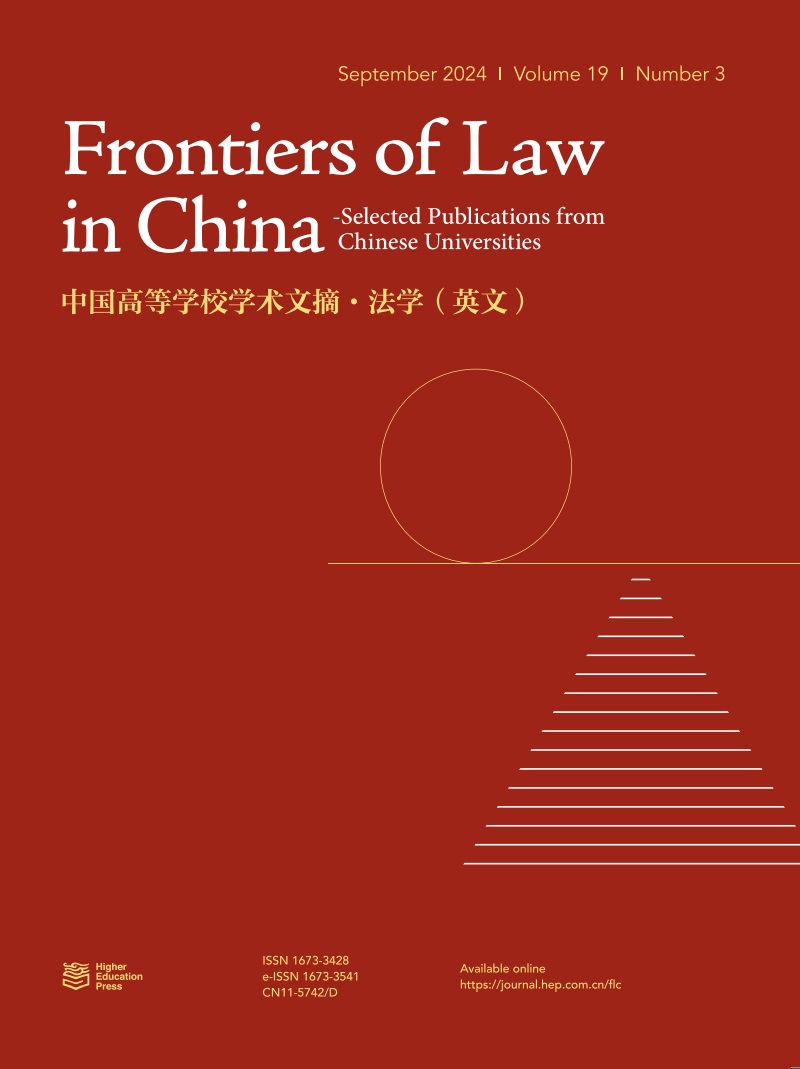THE LEGAL PROTECTION FOR CHINA'S FLEXIBLE WORKERS DURING THE COVID-19 PANDEMIC
IF 0.1
4区 社会学
Q4 LAW
引用次数: 0
Abstract
The COVID-19 pandemic has caused a chain of socioeconomic effects worldwide. China's social and economic operations and labor market have also been suffered because of this global crisis. During hard times, flexible employment becomes an important means for stabilizing employment. However, the pandemic also exposed the problems ensuing from insufficient legal protection for flexible workers. First, there are some gaps and defects in the labor and social security laws in terms of their scope and applicability to flexible workers. Second, there were limitations in the support and protection policies for flexible workers at the early stages of the pandemic. Although the government implemented measures soon after the outbreak of COVID-19, their role is still constrained by the legal lacunae in protecting flexible workers. As flexible employment will continue to play a significant role in China's labor market, the State Council issued a far-reaching official document in July 28, 2020 to support it. This document indicates the directions for providing better legal protection for flexible workers, which contains expanding the legal scope and enriching the legal protection. Based on the realities and latest policies, the legal protection for flexible workers should be systemically improved in the future.新冠肺炎疫情期间中国灵活就业人员的法律保障
2019冠状病毒病大流行在全球范围内造成了一系列社会经济影响。中国的社会经济运行和劳动力市场也受到了这场全球危机的影响。在经济困难时期,灵活就业成为稳定就业的重要手段。然而,这场大流行病也暴露了对灵活工作人员法律保护不足所产生的问题。首先,我国劳动保障法和社会保障法对弹性工作制的适用范围和适用范围存在一定的差距和缺陷。第二,在大流行的早期阶段,对灵活工作人员的支持和保护政策存在局限性。虽然政府在新冠疫情发生后不久就实施了相关措施,但在保护弹性劳动者方面,政府的作用仍然受到法律空白的制约。鉴于灵活就业将继续在中国劳动力市场发挥重要作用,国务院于2020年7月28日发布了一份影响深远的官方文件予以支持。该文件指明了为灵活工作人员提供更好的法律保护的方向,包括扩大法律范围和丰富法律保护内容。今后应根据实际情况和最新政策,系统完善对弹性工作制的法律保护。
本文章由计算机程序翻译,如有差异,请以英文原文为准。
求助全文
约1分钟内获得全文
求助全文
来源期刊

中国法学前沿
LAW-
CiteScore
0.20
自引率
0.00%
发文量
398
期刊介绍:
Frontiers of Law in China seeks to provide a forum for a broad blend of peer-reviewed academic papers of law studies, in order to promote communication and cooperation between jurists in China and abroad. It will reflect the substantial advances that are currently being made in Chinese universities in the field of law. Its coverage includes all main branches of law, such as jurisprudence, constitutional jurisprudence, science of civil and commercial law, science of economic law, science of environmental law, science of intellectual property, science of criminal justice, science of procedural law, science of administrative law, science of international law, science of legal history, science of history of legal thoughts, etc.
 求助内容:
求助内容: 应助结果提醒方式:
应助结果提醒方式:


